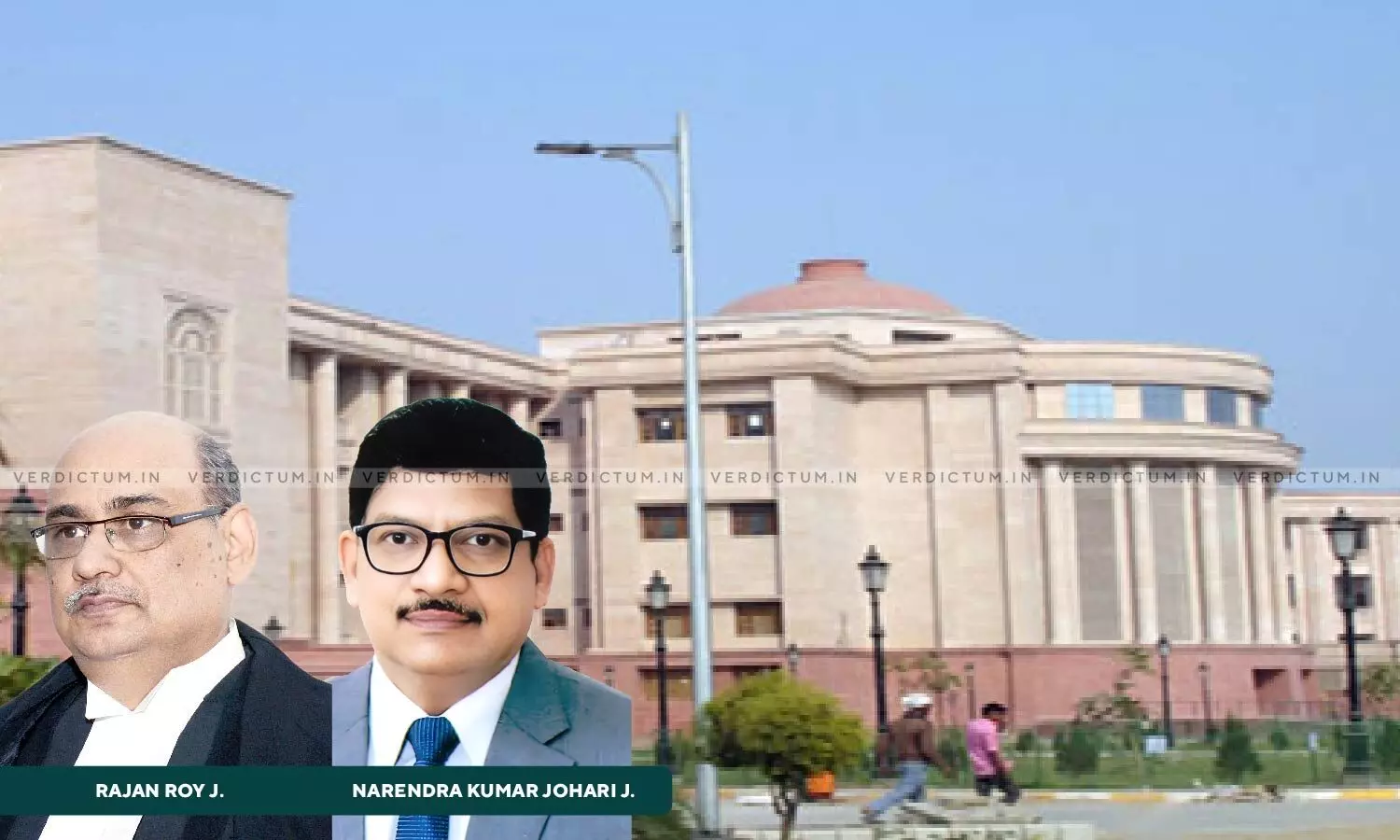
Detaining Authority Failed To Apply Judicial Mind And Consider Constitutional Safeguards: Allahabad HC Orders Release Of Detenue Under NSA
 |
|Reiterating the principles of protection of civil liberties, the Allahabad High Court ordered release of the detenue.
The court observed that the detaining authority has not applied his judicial mind to curb the protection guaranteed by the Constitution against the personal liberty of the petitioner.
A habeas corpus petition was filed by the Detenue assailing the detention order passed by the District Magistrate seeking release on the ground that the impugned order passed under the National Security Act, 1980 is illegal and arbitrary. The Petitioner was charged under Sections 302, 449, 380, 201, 411 IPC and Section 3 and 25 Arms Act, 1959.
The Division Bench of Justice Rajan Roy and Justice Narendra Kumar Johari observed “The detaining authority has not applied his judicial mind to curb the protection guaranteed by the Constitution against the personal liberty of the petitioner…Having considered the arguments of learned counsels for the petitioner and opposite parties, material available on record and dictums of Hon'ble Apex Court and co-ordinate bench decisions of this Court, as discussed above, we are of considered view that the impugned order of detention dated 17.05.2023, passed by the District Magistrate, Gonda was without application of mind, hence the detention order is held illegal, which deserves to be set aside.”
Advocate Rajendra Prasad Mishra appeared for the Petitioner while GA Dr Pooja Singh appeared for the Respondents.
The Counsel for the Petitioner submitted that as per the provisions of Section 3(2) of the NSA, the accused can be detained under the Act, where there is an apprehension of disturbance of public order, which was contrary to the facts and circumstances of the present case. He further stated that the accused committed the offence within four walls of a residential house, therefore, there were no disturbances in “law and order” and “public order”.
The Court observed, “…it is apparent that in the present case there was an offence against the individual person which was committed within the walls of a residential accommodation. Any use of deadly weapon has not been shown in the F.I.R. Commission of any other offence has also not been shown subsequent to commission of murder. The accused was arrested just third day of occurrence, no specific and substantive effect on public at large in consequence of or as a repercussion of murder has been mentioned by the police authorities as well. It has also been shown that the petitioner is not having any criminal history in his credit. The detention order has been slapped after lapse of three and half months. The apprehension that he would be released on bail, apart from being a sure cannot justify the preventive detention in the absence of satisfaction of ingredients of Section 3 (3) of the Act, 1980.”
The Court, thoroughly, discussed the meaning of “public order” and “law and order” and relied on the Apex Court’s judgments in Gulab Mehra v. State of U.P. and others, Manu Bhushan Roy Pradhan v. State of West Bengal and others and Ram Ranjan Chatterjee v. State of West Bengal. It stated that in the present case, there was no specific consequence of the offence of murder. Further, every criminal act may be prejudicial to law and order but every crime cannot be termed as a prejudicial act against public order, said the Court.
As regards Article 22 of the Constitution of India, the Court said, “The above sub-clause (3) (b) is like exception of above subclause (1) and (2) of Article 22, it affects the right of detained person adversely. Fundamental Rights are meant for protecting the civil liberties of the citizens, whereas the above exceptional clause keeps the accused under incarceration without trial. Although the State has been granted the power to curb the civil liberties under the law of preventive detention, they are required to be exercised with due caution and after due consideration and on application of mind to the facts and material of a case in the light of the law on the subject.”
Accordingly, the habeas corpus petition was allowed. The detention order was quashed, and the Petitioner was released immediately from the Jail.
Cause Title: Sandeep Yadav v. Union of India and Ors. (Neutral Citation: 2024:AHC-LKO:28176-DB)
Appearances:
Petitioner: Advocate Rajendra Prasad Mishra
Respondents: ASGI Dr. Pooja Singh, GA Dr Pooja Singh.